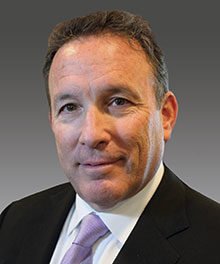Changing the Climate

It is urban legend that the formula for Coca-Cola is one of the best kept secrets in industrial history. But one thing’s for certain. They need water to make soda, and the company’s vice president for environment and water resources, Jeffrey Seabright, told the New York Times that the epic global swings between drought and flood are not only disrupting the company’s water supplies, they are also disrupting their production of essential sugar and citrus crops
The Coca-Cola Company now officially considers climate change an “economically disruptive force” on its balance sheet. So does Nike, which in 2008 lost four plants in Thailand due to flooding. Nike now reports the impact of climate change on water supplies on its financial risk disclosure forms to the SEC, according to the same article.
I’m detecting a pattern here. Love Al Gore or hate him, when the biggest companies in the world are telling us that climate change has become a key factor in their operations and their profitability, it’s time to pay attention. And you don’t have to be Coke or Nike to feel the pain, including the economic pain. Just ask the companies who weathered Superstorm Sandy, including ours.
Marcum was lucky. We only had to close the doors for one day in Melville and New York City, and once we reopened, we were able to offer shelter and support to employees who had no electricity or heat at home. But the lengthened commute times due to debris, downed power lines and the legendary New York traffic, not to mention the physical and emotional toll borne by our employees, all definitely beat up on our productivity. And it was actually much worse for our Tinton Falls, New Jersey, office, which had to shut down for a 10-day stretch! And we were one of the lucky ones!
We managed to stay open during the blizzard that hit the East Coast last week, but in the interest of safety, we gave employees the option of leaving early and working at home the second day. Those that didn’t have the necessary technology at home in order to work slogged into the office or took a Paid Time Off day. Without a doubt, productivity and profitability were definitely affected.
I may not be an economist, or a scientist, or even a weather prognosticator, but I know a problem when I see one. And I’m not surprised that climate change is suddenly gaining respect and credibility as an economic force. How could it not, when companies big and small are having to factor weather impacts into their operations and their financial reporting?
The gale-force economic winds of climate change are also hitting us broadside in some positive ways. Reengineering manufacturing processes to use less water and to clean and reuse contaminated water streams is one example. The cost of these improvements is recouped in efficiency and in shrunken plant footprints.
We are also seeing positive developments in a larger environmental context. We have a client, for instance, in the business of manufacturing plastic grocery bags. Unfortunately for them, California is imminently expected to become the first state in the country to outlaw plastic grocery bags. They are already prohibited in several California cities, including Los Angeles and San Francisco, but the specter of losing the most populous market in the country has forced our client to reinvent their business to meet the new economy. They now manufacture non-plastic reusable bags as well as plastic trash bags, which are still permitted, and they also have implemented a recycling program.
Change in itself is not always a bad thing. Even change propelled by negative or damaging circumstances has the potential to end up positive. Hopefully, more captains of industry as well as our policy leaders in Washington will recognize this sooner rather than later.
Politics being what it is, the raging argument on both sides of the aisle about whether the threat of climate change even exists will be tempered by the reality being experienced by companies like Coca-Cola and Nike.
It’s time to get out our paddles and start rowing in earnest. Our economic future may depend on it.
Carolyn Mazzenga & Julie Gross Gelfand contributed to this posting.
